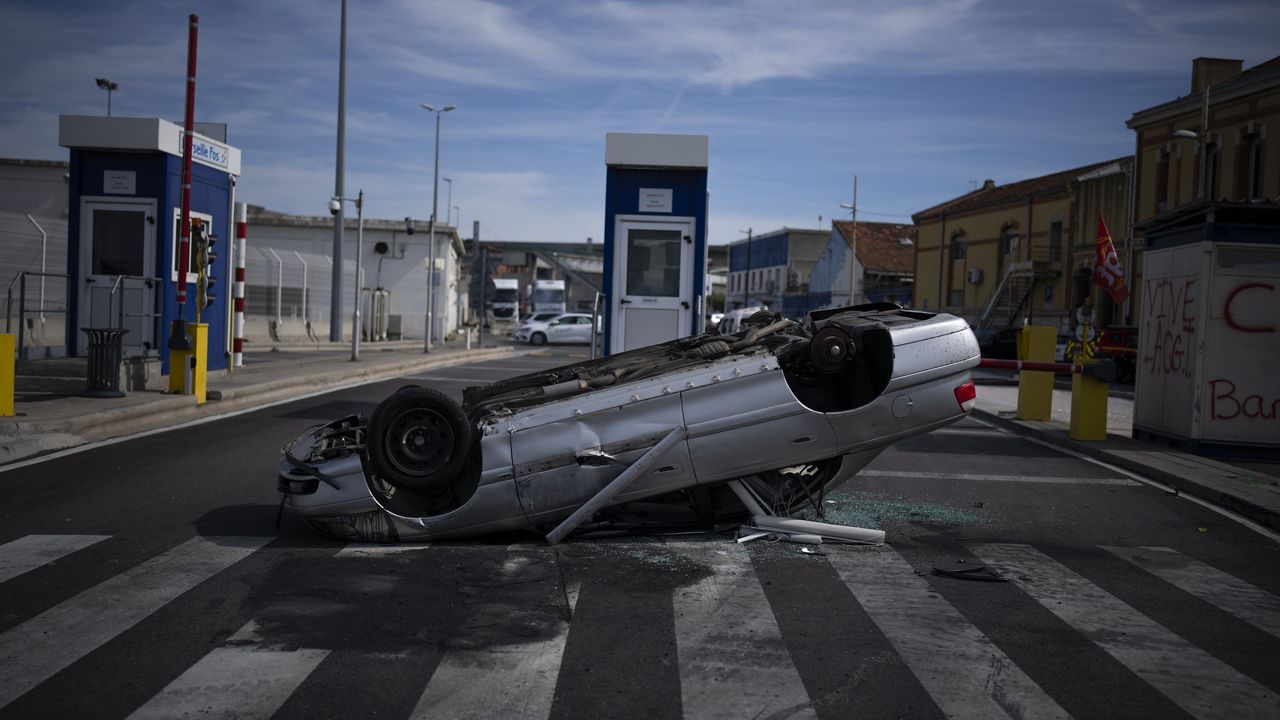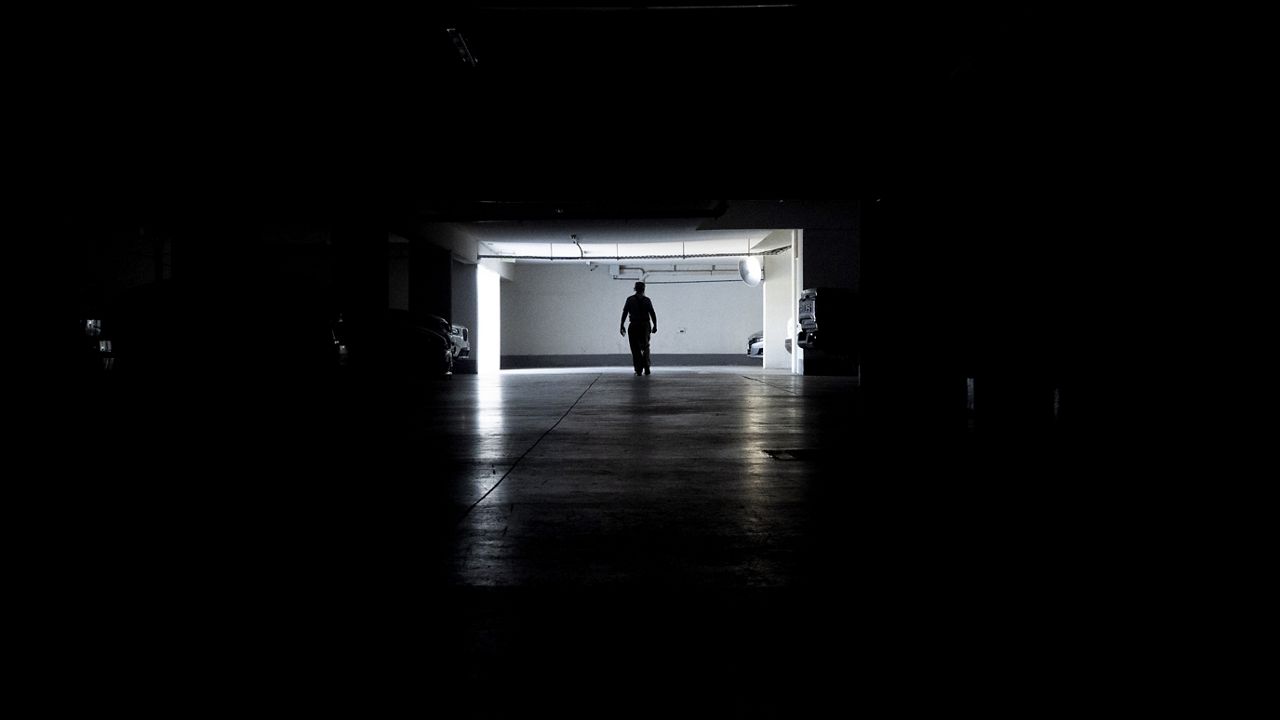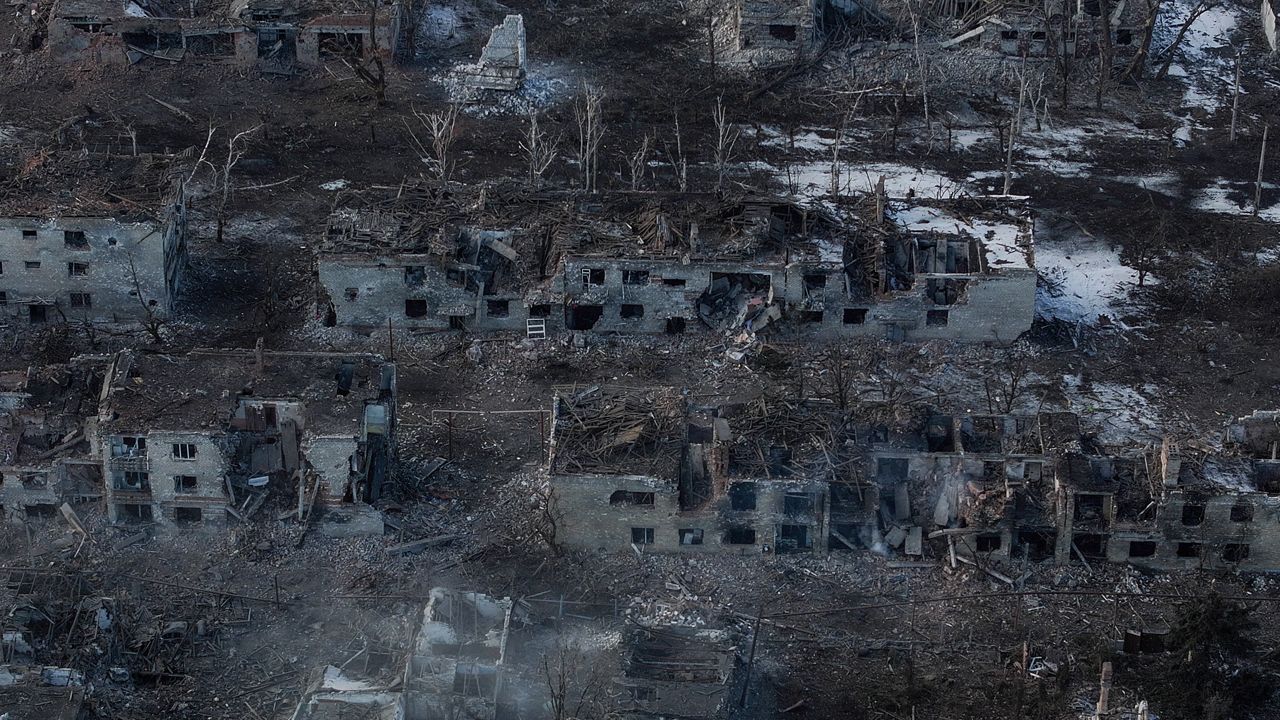Angry protesters disrupted traffic along a busy Paris ring road Friday in opposition to French President Manuel Macron's decision to ram a bill raising the retirement age from 62 to 64 through parliament without a vote while the government faces two no-confidence motions.
What You Need To Know
- Protesters angered by French President Emmanuel Macron's decision to force a bill raising the retirement age from 62 to 64 through parliament without a vote disrupted traffic on a portion of the Paris ring road on Friday
- A day after Prime Minister Elisabeth Borne invoked a special constitutional power to skirt a vote, the far-right National Rally and a small group representing leftist lawmakers and others opposed filed separate no-confidence motions
- They are are expected to be voted on early next week
A day after Prime Minister Elisabeth Borne invoked a special constitutional power to skirt a vote in a chaotic lower chamber, the far-right National Rally and a small group representing leftist lawmakers and others filed separate no-confidence motions that are expected to be voted on early next week.
The fury Borne had faced in the National Assembly poured into the streets with citizens resolving to carry on their protests against the widely unpopular measure.
Protesters halted cars along a stretch of the road circling Paris, students blocked some university campuses and Paris garbage collectors extended their strike for a 12th day, with piles of foul-smelling rubbish growing daily in the French capital. Striking sanitation workers continued their blockade Europe's largest incineration site and two other sites that treat Paris garbage.
Leaders of the influential leftist CGT union have called on people to leave schools, factories, refineries and other work places to force the government to withdraw the pension reform bill, which is not yet a law.
Macron took a calculated risk ordering Borne to make use of a special constitutional power that she had used 10 times before but without triggering the outpouring of anger caused by a bill that affects pensions and the retirement age.
Thousands gathered in protest Thursday at the elegant Place de la Concorde, which faces the National Assembly building. As night fell, police officers charged the demonstrators in waves and used a water cannon to clear the Place. Small groups then moved through nearby streets near chic boutiques and high-end real estate, setting street fires along the way.
Similar scenes repeated themselves in numerous other cities, from Rennes and Nantes in eastern France to Lyon and the southern port city of Marseille, where shop windows and bank fronts were smashed, according to French media.
French Interior Minister Gérald Darmanin told radio station RTL on Friday that 310 people were arrested overnight. Most of the arrests, 258, were made in Paris, according to Darmanin.
Several groups, including some yellow vest activists who had mounted formidable protests against Macron's economic policies during his first term, called on the president's opponents to march on the parliament at 18:00 (17:00GMT ) on Friday.
The trade unions that had organized strikes and marches against a higher retirement age said more rallies and protest marches would take place in the days ahead, but stressed that any action should be peaceful. "This retirement reform is brutal, unjust, unjustified for the world of workers," they declared Thursday night.
Overwhelming streets with discontent and refusing to continue working is "the only way that we will get them to back down," CGT union representative Régis Vieceli told The Associated Press on Friday. He added: "We are not going to stop."
Macron has made the proposed pension changes the key priority of his second term, arguing that reform is needed to make the French economy more competitive and to keep the pension system from diving into deficit. France, like many richer nations, faces lower birth rates and longer life expectancy.
The Senate, controlled by conservatives favorable to the bill, passed it Thursday morning. However, frantic counts of lower-house lawmakers showed a slight risk that the pension reform wouldn't pass, leading to the decision to invoke Article 49-3 of the French Constitution to bypass a vote.
If the expected no-confidence motion fails, the pension bill would be considered adopted. If it passes, it would spell the end Macron's retirement reform plan and force the government to resign.
Macron could reappoint Borne if he chooses, and a new Cabinet would be named.
Getting a no-confidence motion to pass is challenging as it requires a majority of 287 lawmakers. The last time a no-confidence vote succeeded was in 1962.
Macron's centrist alliance has the most seats in the National Assembly. Leaders of the The Republicans have said their conservative party would not back the motion.While some party lawmakers might stray from that position, they are expected to be a minority.








